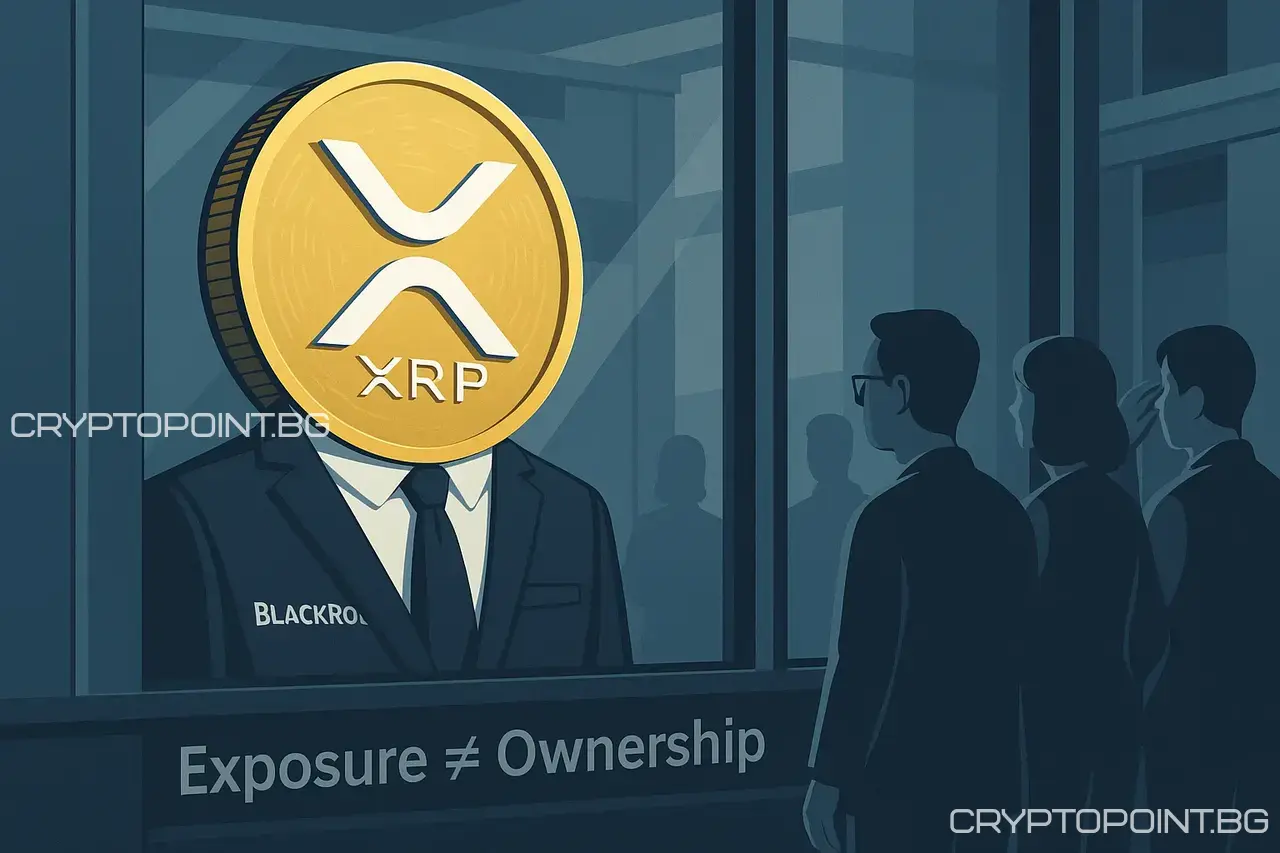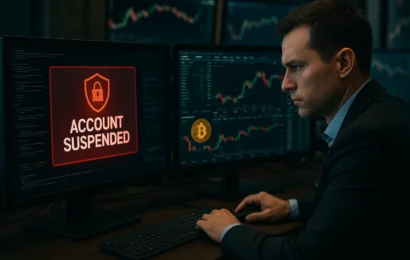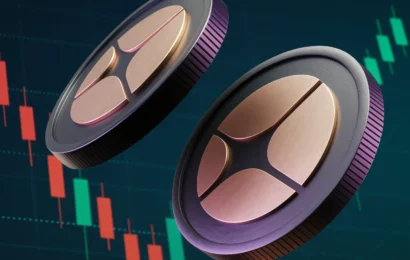
BlackRock’s XRP ETF could be risky for retail investors, warns Van Dell, co-founder of Black Swan Capitalists.
Key Highlights:
- An XRP ETF may benefit Wall Street more than retail investors, according to Van Dell.
- While ETFs offer convenience, they strip away crypto’s core benefits like true ownership and direct utility.
- BlackRock controls access and fees, while investors get only price exposure—not real participation in the network.
XRP ETF: Profit for Wall Street, not the public?
Amid growing speculation around a potential XRP exchange-traded fund (ETF), Van Dell, co-founder of Black Swan Capitalists, warns investors not to jump on the hype too quickly.
People are excited about the idea of an XRP ETF, especially if it’s backed by BlackRock
says Dell.
But the real question is—who truly benefits from it?
Wall Street in a Suit, but Blockchain Underneath
BlackRock—the world’s largest asset manager with over $10 trillion in assets—has massive influence in the financial world.
Dell argues that the goal of BlackRock’s XRP ETF is not to democratize access to crypto, but to dominate and monetize emerging technologies:
It’s a way to dress disruptive technology like XRP in a suit and make it palatable for Wall Street.
An ETF makes XRP more accessible for traditional investors who don’t want to deal with wallets, private keys, or exchanges—but at the cost of real utility and token control.
Ownership Without True Ownership
Owning an XRP ETF is not the same as owning XRP
says Dell.
An ETF provides price exposure, but not real access to the asset itself.
- You can’t send the ETF to a wallet
- You can’t use it for transactions
- You can’t participate in the XRP network
True ownership and network participation require holding the native token directly.
ETF Is a Model That Serves Institutions
Dell outlines several reasons why BlackRock and similar firms prefer ETFs over direct crypto ownership:
- Regulatory comfort: ETFs operate under SEC guidelines
- Guaranteed fees: Annual fees provide steady income
- Price control: Creation and redemption of ETF shares can influence volatility
Example: BlackRock’s Bitcoin ETF reportedly sees over $356 million in daily inflows (May 2025). Dell argues that firms like BlackRock use insider information and media timing to create artificial price moves and profit from emotional retail responses.
The Bigger Picture: Convenience for Some, Loss for Others
While he acknowledges that ETFs offer convenience for traditional investors, Dell emphasizes their limitations and hidden trade-offs:
For them, it’s business as usual—more control, more profit, less operational friction. For everyday investors—it means less ownership, less utility, and more vulnerability to manipulation.
Conclusion:
True crypto ownership still lies in holding the native token. ETFs may make XRP “accessible,” but at the cost of control, participation, and the vision behind decentralized assets.
Don’t get caught up in the hype,” says Dell. “Understand the macro context—and remember that true crypto ownership comes from holding the actual token.
Frequently Asked Questions
Find answers to the most common questions below.
This is an exchange-traded fund that offers price exposure to XRP without actually owning the token itself.
Investors do not get real ownership of XRP, nor access to its features such as transactions, staking or network participation.
Because of regulatory certainty, stable fee income and control over market dynamics through shareholdings and liquidity.
Be careful with ETF enthusiasm, understand the big picture and prioritize direct token ownership whenever possible.
This article is for general informational purposes only and is not intended to be, and should not be construed as, legal or investment advice. Crypto-assets are highly volatile, so only invest funds that you are willing to lose and use your own research and risk management.




